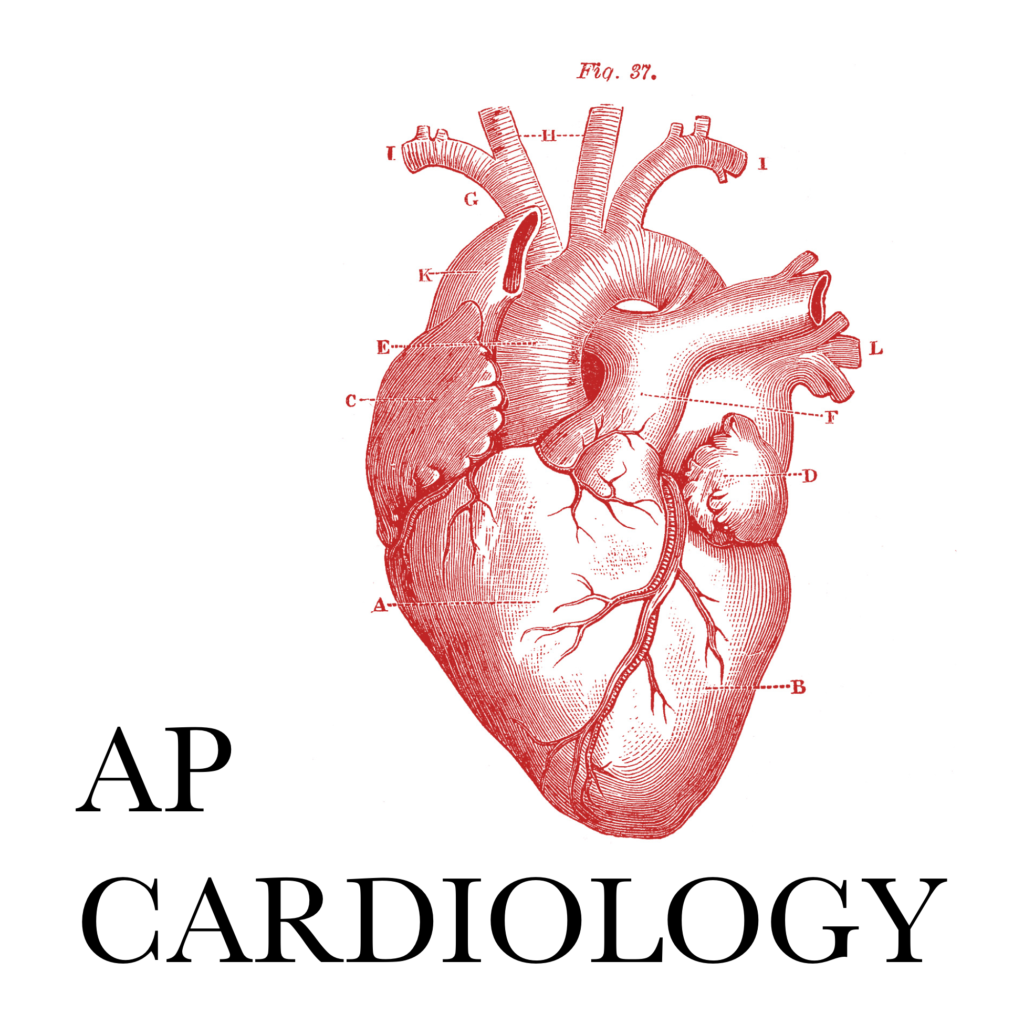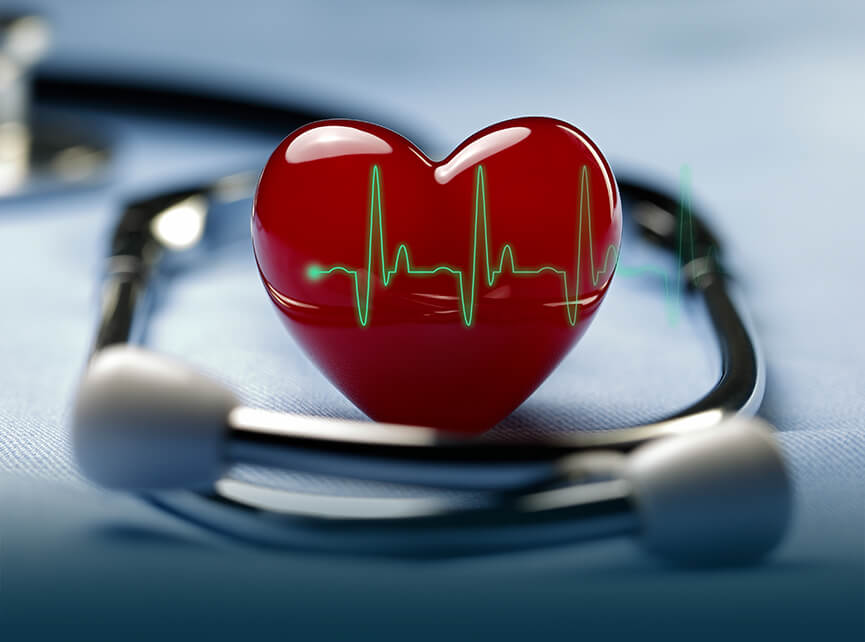The science behind stress and cardiovascular health from Dr Garcia’s perspective
Recognizing the Importance of Cardiology in Modern Healthcare Solutions
Cardiology plays a vital function in modern-day health care, specifically as cardiovascular disease continues to be the leading reason for death worldwide. Developments in diagnostics and therapy have actually changed client treatment, making it possible for earlier treatments and boosted end results. The change in the direction of preventative cardiology equips people to handle their wellness proactively. As modern technology remains to progress, the combination of ingenious services might further redefine cardiology's effect on public wellness, motivating a better assessment of emerging trends and their effects.
The Frequency of Heart Problem and Its Effect On Public Health And Wellness
Heart disease continues to be the leading reason of death globally, its influence prolongs much beyond specific clients to affect public wellness systems and economic climates. The high prevalence of cardiovascular disease positions a significant strain on medical care resources, necessitating boosted funding for therapy, rehab, and avoidance programs. Public health and wellness initiatives need to attend to risk aspects such as obesity, cigarette smoking, and sedentary way of lives, which add greatly to the climbing incidence of heart conditions.Moreover, the financial burden related to heart disease is enormous, incorporating not only straight medical expenses however additionally indirect expenses associated with shed performance and premature mortality. Areas face challenges in handling these prices, often resulting in variations in medical care access and outcomes. As the population ages and lifestyle-related dangers remain to rise, the necessity for reliable cardiology treatments becomes critical. Addressing heart disease is not only an issue of private health and wellness however likewise an important public wellness concern.
Advances in Cardiac Diagnostics and Imaging Techniques
Current innovations in heart diagnostics and imaging methods have transformed the field of cardiology, enhancing the capability to keep an eye on and find heart problem. Methods such as cardiac MRI, CT angiography, and echocardiography have actually come to be significantly advanced, offering comprehensive images of heart structures and functions. These modalities enable the early recognition of problems like coronary artery illness, cardiac arrest, and valvular disorders.Moreover, innovations in non-invasive diagnostics, such as wearable innovation and remote tracking devices, have actually empowered clients and healthcare providers. These devices assist in real-time tracking of heart rhythms and various other vital signs, bring about timely treatments. In addition, expert system is being incorporated into imaging evaluation, improving precision and efficiency in diagnosis.
Developments in Therapy Choices for Heart Issues
Recent innovations in cardiology have brought about significant innovations in therapy options for heart disease. These consist of sophisticated medical techniques that improve procedural results and arising medications that use new opportunities for treatment. As the field develops, these innovations play a crucial duty in improving individual treatment and outcomes.
Advanced Surgical Techniques
Developments in medical techniques have actually changed the landscape of cardiology, offering new expect people with heart disease. Minimally invasive procedures, such as catheter-based treatments, have actually greatly minimized recovery times and medical facility stays. Techniques like robotic-assisted surgical treatment boost accuracy, permitting surgeons to navigate complex anatomical frameworks with greater accuracy. In addition, advancements in imaging innovation help with real-time visualization throughout procedures, boosting results. Transcatheter aortic valve substitute (TAVR) exemplifies an advancement in treating aortic stenosis, enabling valve replacement without open-heart surgery. Additionally, hybrid approaches that integrate catheter-based and medical techniques offer customized solutions for various heart concerns. These innovative medical methods not only enhance patient safety and security yet likewise broaden therapy options, underscoring the critical duty of technology in contemporary cardiology methods.
Emerging Therapies and medications
As the landscape of cardiology remains to progress, emerging therapies and medications play a crucial function in enhancing therapy options for heart conditions. Advancements such as novel anticoagulants and advanced lipid-lowering representatives have changed the management of cardio illness, greatly lowering patient morbidity and mortality. In addition, the advancement of genetics therapies and regenerative medication provides encouraging avenues for treating conditions formerly considered incurable. Scientific tests are continuously disclosing the effectiveness of these therapies, pushing the borders of conventional therapies. The combination of electronic wellness technologies assists in tailored medicine, enabling for customized therapy plans based on genetic and way of life variables. Jointly, these advancements highlight the vibrant nature of cardiology, boosting patient results and redefining requirements of treatment in modern-day medical care.
The Role of Preventive Cardiology in Person Care
Precautionary cardiology plays a crucial role in client care by concentrating on the identification of danger factors that add to heart problem. Through way of life alteration approaches and early discovery strategies, doctor can successfully minimize the occurrence of cardio events - Dr Garcia. This proactive approach not only improves patient end results yet additionally advertises long-lasting health and wellness
Danger Element Identification
While cardio conditions continue to be a leading reason for morbidity and death worldwide, reliable danger element identification functions as a keystone of precautionary cardiology. Determining risk factors such as high blood pressure, household, diabetes, and hyperlipidemia background is vital for early treatment. Healthcare specialists make use of different screening approaches to assess these factors, permitting tailored safety nets. Additionally, recognizing a client's way of living options, such as smoking cigarettes and physical inactivity, further notifies threat evaluations. This comprehensive analysis allows medical professionals to develop tailored care plans targeted at mitigating risks. By focusing on risk element recognition, healthcare systems can improve person outcomes and lower the general problem of cardiovascular diseases, eventually adding to improved public health and wellness approaches and source allowance.
Lifestyle Adjustment Methods
A multitude of studies highlights the important duty of lifestyle alteration strategies in decreasing cardio condition threat. These strategies encompass dietary modifications, increased physical task, smoking cigarettes cessation, and weight monitoring. By adopting a heart-healthy diet rich in fruits, vegetables, whole grains, and lean proteins, people can lower cholesterol levels and high blood pressure. Regular physical activity strengthens the heart and improves overall cardiovascular wellness. In addition, giving up smoking cigarettes greatly reduces the risk of heart disease and enhances healing prices for those with status quo. Weight management even more contributes to cardiovascular wellness by minimizing various other danger aspects such as diabetic issues and hypertension. Executing these way of life changes not just advertises specific wellness however also acts as a keystone of preventative cardiology in individual care.
Early Discovery Strategies
Way of life modifications greatly add to minimizing heart disease risks, yet they are most efficient when matched with early detection techniques. Preventative cardiology highlights the significance of determining possible heart concerns prior to they escalate right into major problems. Methods such as blood pressure monitoring, cholesterol screening, and progressed imaging technologies like echocardiograms play critical functions in evaluating cardio health. Biomarkers and hereditary testing likewise enhance the accuracy of early discovery, enabling tailored preventative methods. Normal heart risk analyses empower medical care service providers to interfere proactively, potentially stopping cardiovascular disease and strokes (Dr Garcia). By incorporating these very early detection techniques right into routine care, people can take advantage of prompt way of life treatments and targeted therapies, ultimately improving and enhancing results top quality of life
Integrating Technology Into Cardiology Practices
As developments in innovation remain to improve various fields, the combination of cutting-edge tools and systems into cardiology methods has actually come to be essential for improving individual treatment and end results. Telemedicine systems permit cardiologists to keep track of individuals from another location, boosting accessibility to care while lowering the burden on healthcare facilities. Wearable devices, such as smartwatches, allow continual heart price tracking, alerting both clients and physicians to possible problems in real-time. Furthermore, expert system (AI) is being made use of to examine huge quantities of heart information, helping in early diagnosis and customized treatment strategies. Advanced imaging strategies, consisting of 3D echocardiography, boost visualization of heart frameworks, causing much more accurate interventions. Digital wellness documents (EHRs) enhance person details monitoring, making sure that cardiologists have instant access to essential data. With each other, these technical innovations are changing cardiology, promoting proactive monitoring and boosted health and wellness end results for individuals with cardiovascular conditions.
The Significance of Person Education and Involvement
Individual education and learning and involvement play an essential duty in the administration of cardio health. By outfitting clients with expertise about their conditions, treatment alternatives, and lifestyle changes, healthcare suppliers empower individuals to take an This Site energetic duty in their care. This positive approach can result in boosted adherence to suggested medications, dietary adjustments, and workout regimens, eventually reducing the danger of complications.Engagement likewise cultivates a solid patient-provider partnership, encouraging open communication and depend on. When people really feel notified and involved, they are more probable to voice worries and ask inquiries, which can lead to better medical results. Furthermore, educational resources, such as workshops or digital systems, can improve understanding and advertise self-management methods. On the whole, focusing on person education and learning and engagement is vital for improving cardio health and wellness, enhancing high quality of life, and minimizing health care expenses connected with heart diseases.
Future Trends in Cardiology and Their Possible Influence

Frequently Asked Inquiries
What Way Of Living Modifications Can Minimize Heart Problem Risk?
The existing inquiry addresses way of living adjustments that can considerably decrease heart problem threat. Cardiologist near me. Taking on a balanced diet, involving in routine physical activity, maintaining a healthy and balanced weight, handling stress, and staying clear of tobacco can notably boost cardiovascular health
Exactly How Can I Recognize Very Early Indications of Heart Problems?
Acknowledging early indicators of heart problems entails tracking signs and symptoms such as breast discomfort, lack of breath, fatigue, and uneven heartbeat. Prompt awareness of these signs can prompt needed medical examination and intervention for much better results.
What Are the Differences In Between Cardiologists and Heart Surgeons?
The differences in between cardiologists and cardiac specialists exist in their functions; cardiologists largely diagnose and take care of heart conditions with non-invasive approaches, while cardiac cosmetic surgeons execute surgeries to deal with structural heart issues. Each plays a vital, distinctive role.

Exactly how Typically Should I Get My Heart Wellness Checked?
The regularity of heart medical examination varies based on specific threat aspects. Typically, adults need to undertake evaluations each to two years, while those with status quo might need more constant evaluations as advised by medical care specialists.
What Role Does Genes Play in Cardiovascular Disease Danger?
Genetics substantially affects cardiovascular disease threat, with familial patterns indicating acquired conditions. Certain genes can incline individuals to high blood pressure, cholesterol problems, and other cardio problems, highlighting the value of genetic testing in assessing heart wellness. Heart illness continues to be the leading cause of fatality worldwide, its influence prolongs much beyond private patients to impact public wellness systems and economic climates. Public wellness initiatives need to address danger factors such as obesity, smoking, and sedentary lifestyles, which add substantially to the rising occurrence of heart conditions.Moreover, the financial burden connected with heart condition is tremendous, including not just straight clinical costs however additionally indirect expenses related to lost performance and early mortality. Preventative cardiology plays a crucial role in individual treatment by concentrating on the recognition of risk elements that contribute to heart illness. Fabricated knowledge (AI) and machine knowing are improving diagnostics and person monitoring, enabling early detection of heart diseases. The differences between cardiologists and cardiac cosmetic surgeons exist in their functions; click for source cardiologists mostly take care of and diagnose heart conditions through non-invasive methods, while cardiac surgeons perform surgical procedures to correct architectural heart concerns.